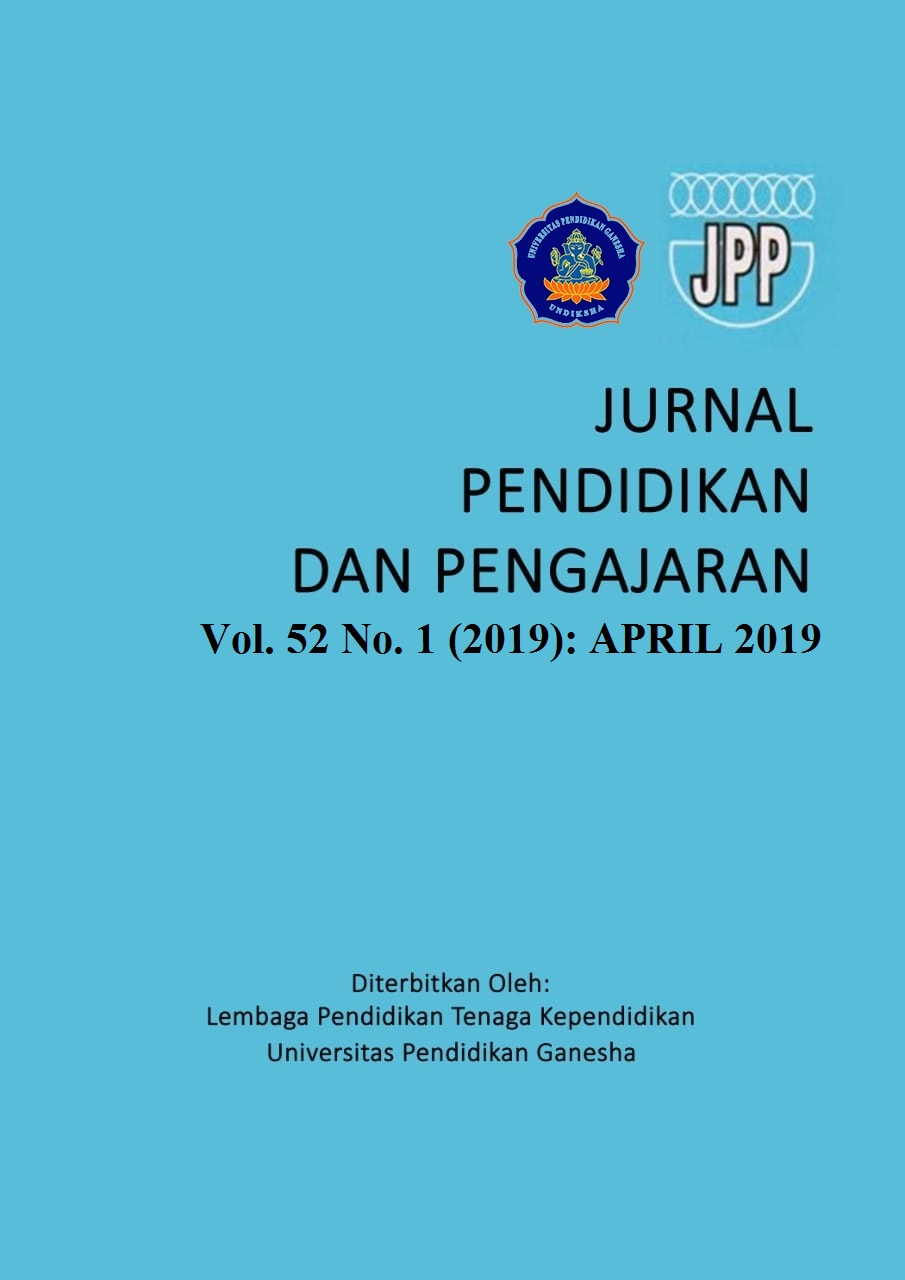Mind mapping: an effective model to improve thematic learning outcomes
DOI:
https://doi.org/10.23887/jpp.v52i1.17244Kata Kunci:
thematic learning, mind mapping, learning outcomesAbstrak
This study aimed at improving students' learning outcomes of class V in Theme 6 using a mind mapping model. This research was conducted in 2 cycles, i.e. cycle 1 and cycle 2, with each cycle consisting of 3 sessions. The research subjects were 16 students of class V SDN Kutowinangun 10 Salatiga. The research design was arranged based on planning, action, observation, and reflection. Result shows that there is an increase in learning completeness, from 31.25% in pre-cycle to 56.25% and 81.25% in cycle I and cycle II, respectively. Therefore, mind mapping model may increase students' learning outcomes.Unduhan
Diterbitkan
2019-04-05
Cara Mengutip
Istikomah, D., & Koeswanti, H. D. (2019). Mind mapping: an effective model to improve thematic learning outcomes. Jurnal Pendidikan Dan Pengajaran, 52(1), 10–14. https://doi.org/10.23887/jpp.v52i1.17244
Terbitan
Bagian
Articles
Lisensi
Authors who publish with Jurnal Pendidikan dan Pengajaran agree to the following terms:- Authors retain copyright and grant the journal the right of first publication with the work simultaneously licensed under a Creative Commons Attribution License (CC BY-SA 4.0) that allows others to share the work with an acknowledgment of the work's authorship and initial publication in this journal
- Authors are able to enter into separate, additional contractual arrangements for the non-exclusive distribution of the journal's published version of the work (e.g., post it to an institutional repository or publish it in a book), with an acknowledgment of its initial publication in this journal.
- Authors are permitted and encouraged to post their work online (e.g., in institutional repositories or on their website) prior to and during the submission process, as it can lead to productive exchanges, as well as earlier and greater citation of published work. (See The Effect of Open Access)





